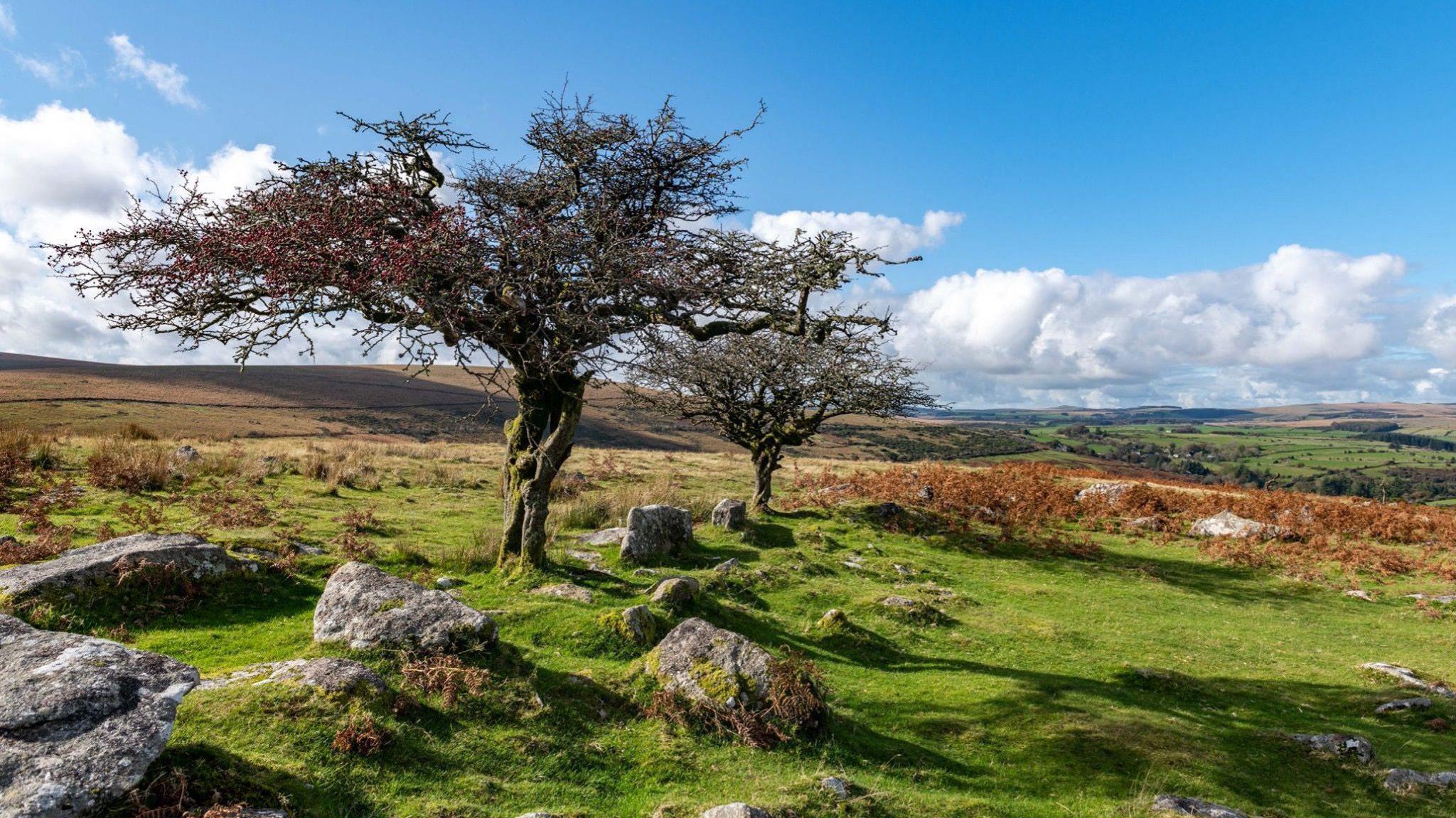Wild camping legal challenge goes to Supreme Court
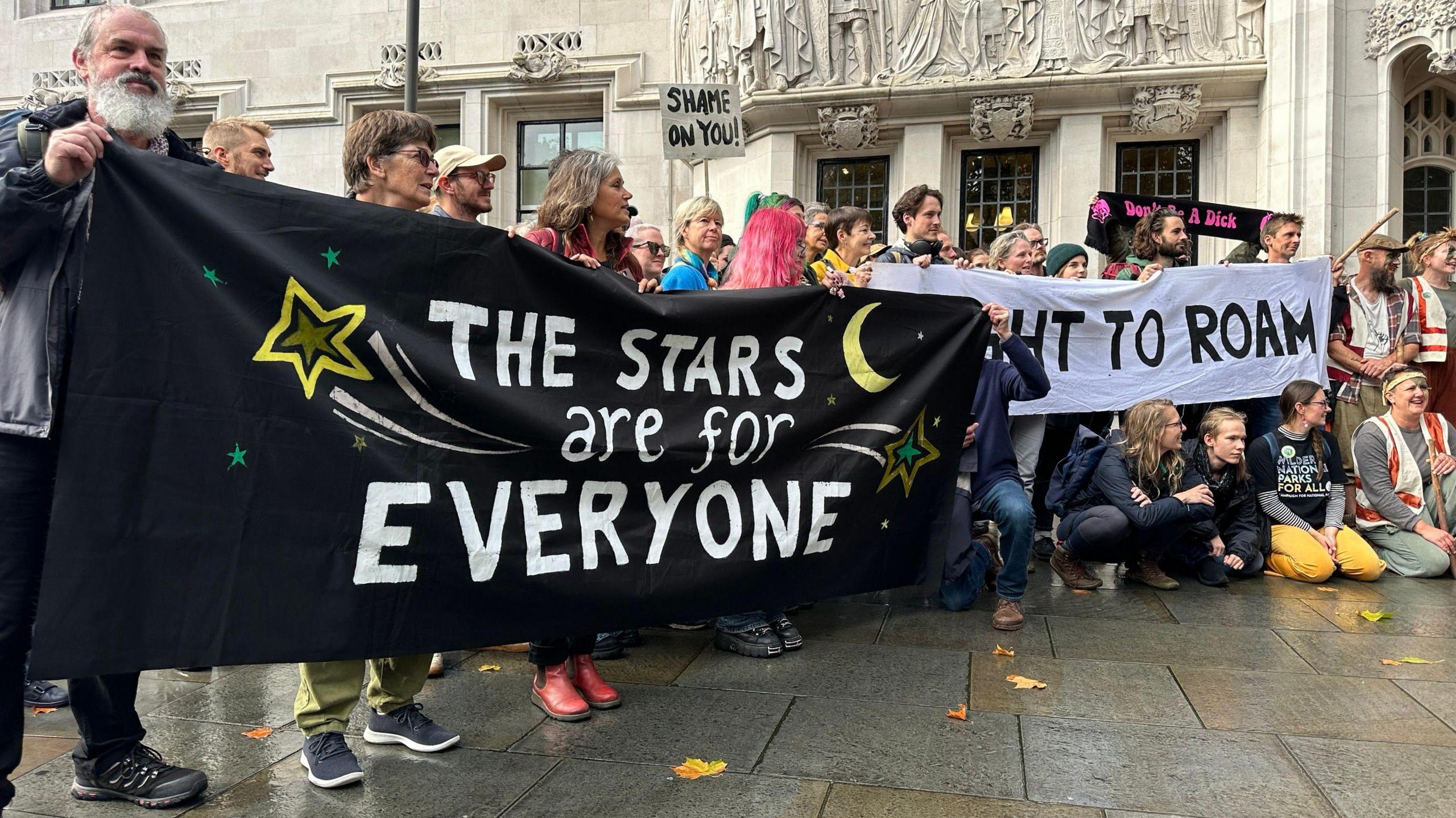
Campaigners take their message to the Supreme Court
- Published
A long-running legal challenge over the right to wild camp on Dartmoor is being heard at the Supreme Court in London.
Alexander and Diana Darwall are challenging a Court of Appeal ruling, which said people can wild camp on some privately owned commons in the national park in Devon.
The couple keep cattle on Stall Moor, which forms part of their 4,000 acre (16 sq km) estate, and claim that some campers cause problems to livestock and the environment.
Dartmoor National Park Authority (DNPA), has said that it would seek "to defend the public's right to access the national park for open-air recreation" while continuing work to "protect Dartmoor's unique characteristics".
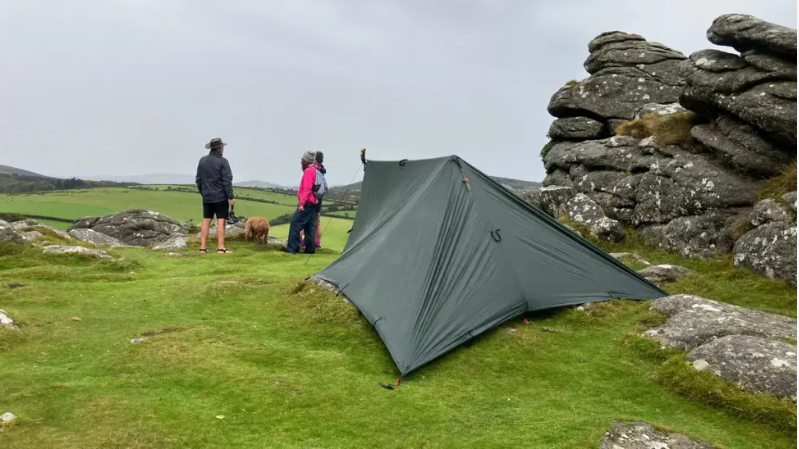
Wild camping is a form of open air recreation, the Court of Appeal ruled
Lawyers for the Darwalls argued on Tuesday that a 1985 law which allows "access to the commons on foot and on horseback for the purpose of open-air recreation" would prohibit camping.
In written submissions Timothy Morshead KC argued the words "open-air recreation" were "not describing what the public had a right to do on Dartmoor but, rather, describing the purpose for which the public might exercise its right to walk and ride" on it.
Mr Morshead said the Darwalls were not "motivated by a desire to stop camping", but concerned about "the damage that wild camping can cause and, in particular, about the significant risk of fire associated with it".
However, lawyers for the DNPA said the phrase "on foot" meant "access to the commons should be pedestrian" rather than in a vehicle.
Richard Honey KC said: "It does not mean that persons must be standing up at all times."
He said a law which would prevent someone on Dartmoor "from sitting, kneeling or lying down would be absurd."
'No damage'
Mr Honey also disputed the suggestion wild camping could damage land.
"Erecting a tent for backpack or wild camping for a night or two would do no such damage," he said.
Dartmoor National Park, designated in 1951, covers a 368-square mile (953 sq km) area that features commons, areas of unenclosed privately owned moorland where locals can put livestock.
The Darwalls won a High Court case in January 2023 to be allowed to remove people found camping on their land.
The DNPA asked appeal judges to overturn the High Court's decision and in July 2023, the Court of Appeal ruled in the DNPA's favour, with judges saying the "critical question" was whether wild camping could be considered a form of "open-air recreation", and finding it was.
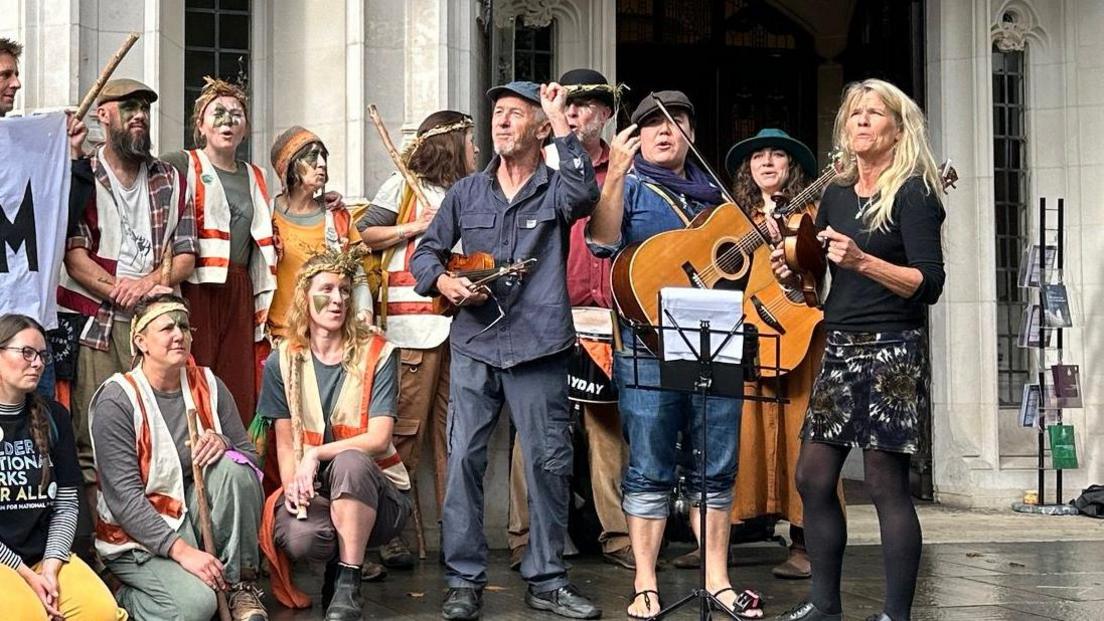
Campaigners joined by musicians outside the Supreme Court in London
In January, Mr and Mrs Darwall were given the green light to take the case to the Supreme Court.
Campaigners The Stars are for Everyone, who were part of a demonstration at Hound Tor on Sunday, said whatever the outcome, the Darwalls' legal action had "succeeded in unleashing something powerful and ancient, a commitment to our commons, our love for the land, our right to belong".
The hearing is due to last one day and a judgment is expected at a later date.
Follow BBC Devon on X (formerly Twitter), external, Facebook, external and Instagram, external. Send your story ideas to spotlight@bbc.co.uk, external.
- Published6 October 2024
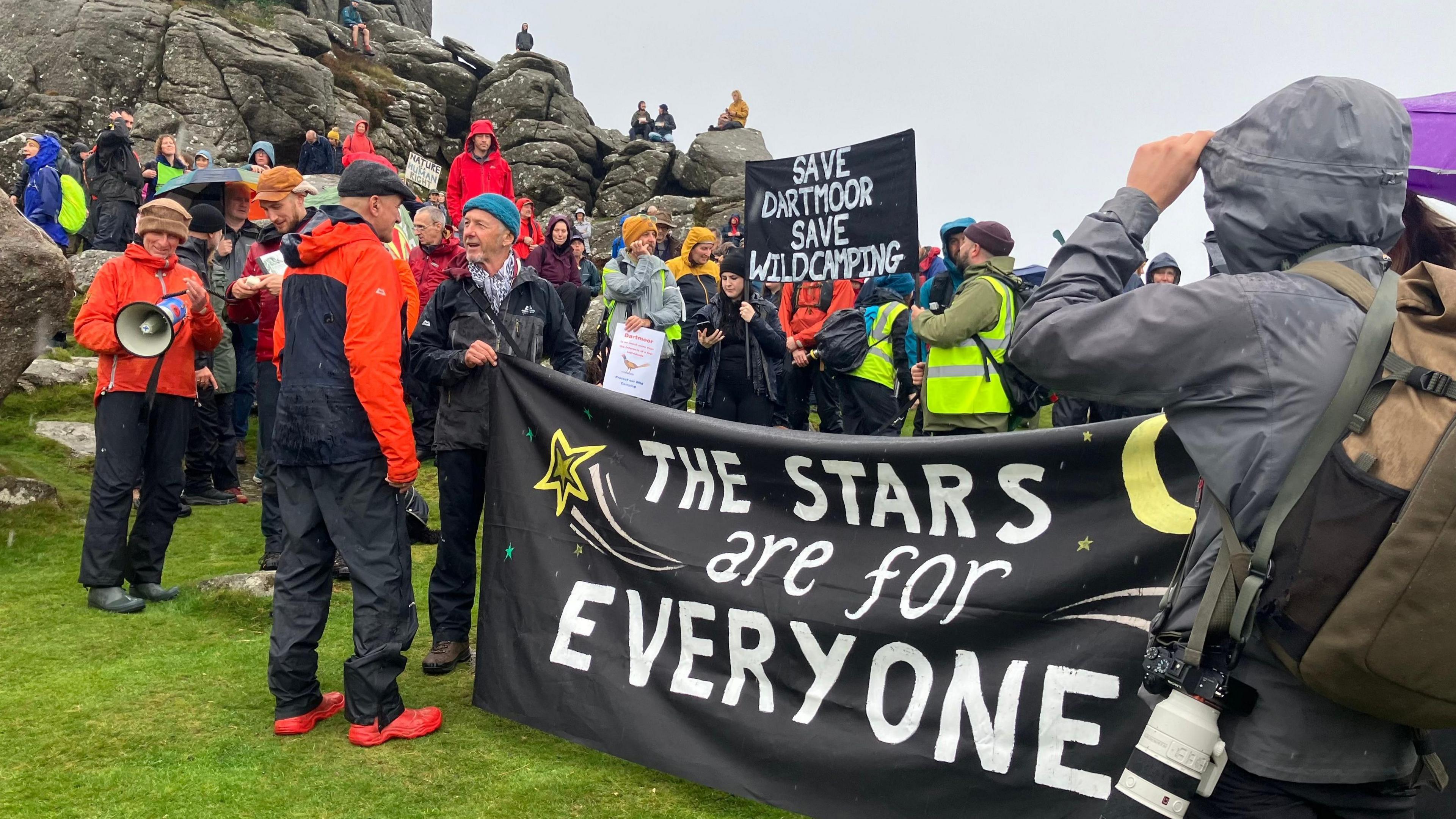
- Published31 July 2023
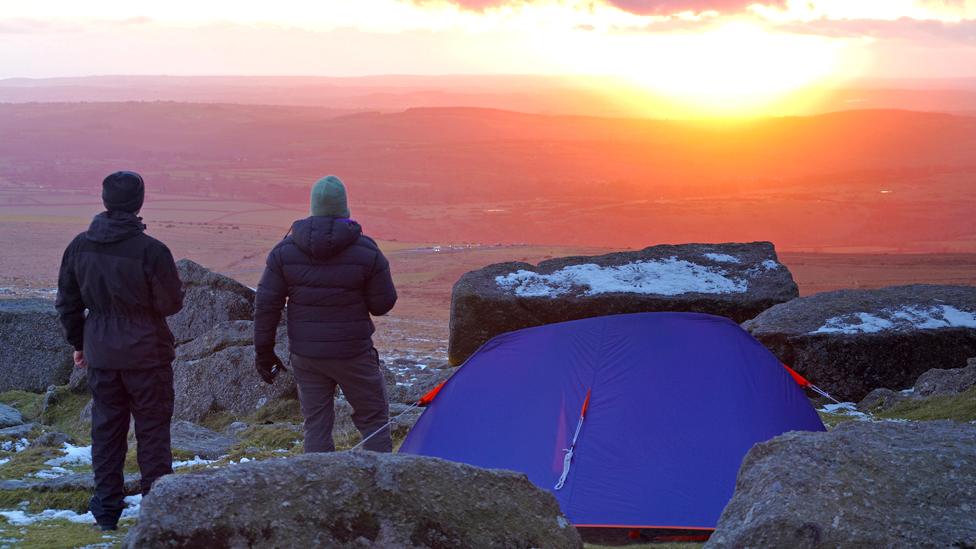
- Published10 January 2024
